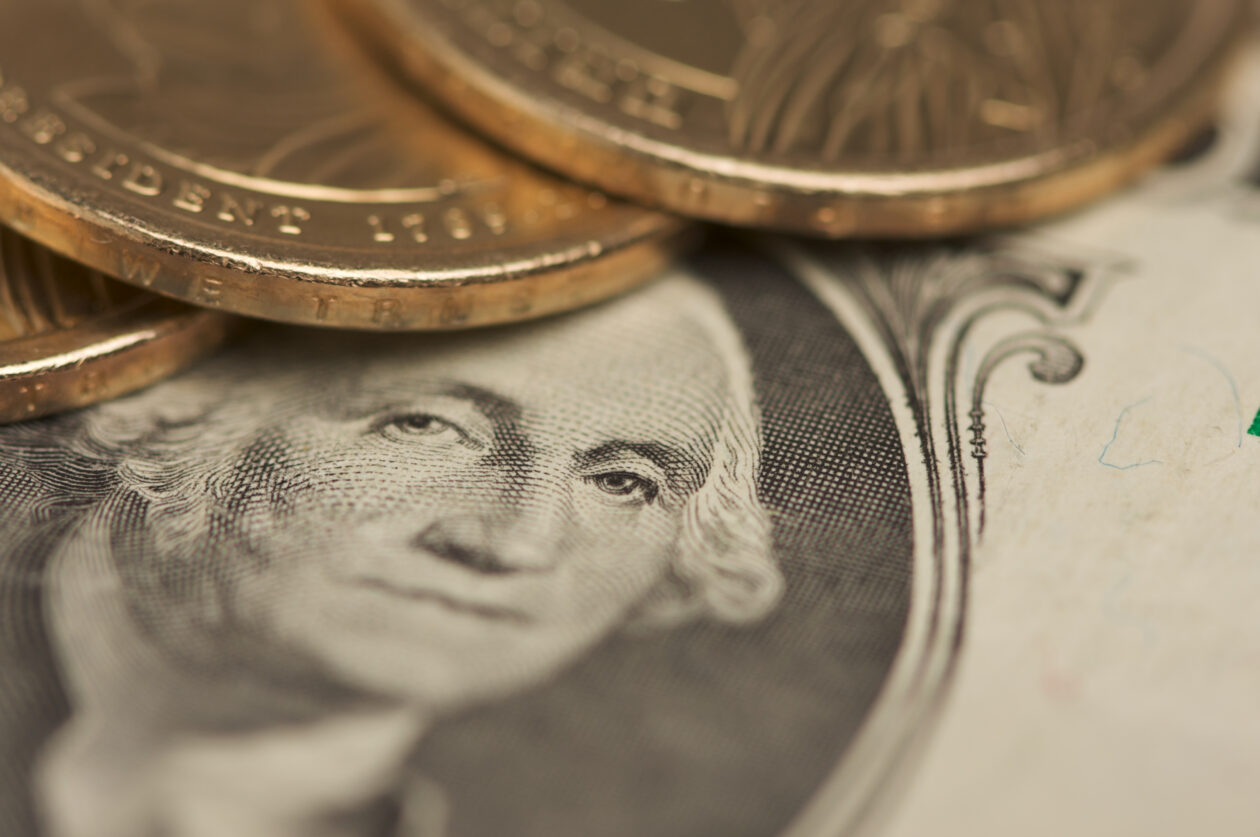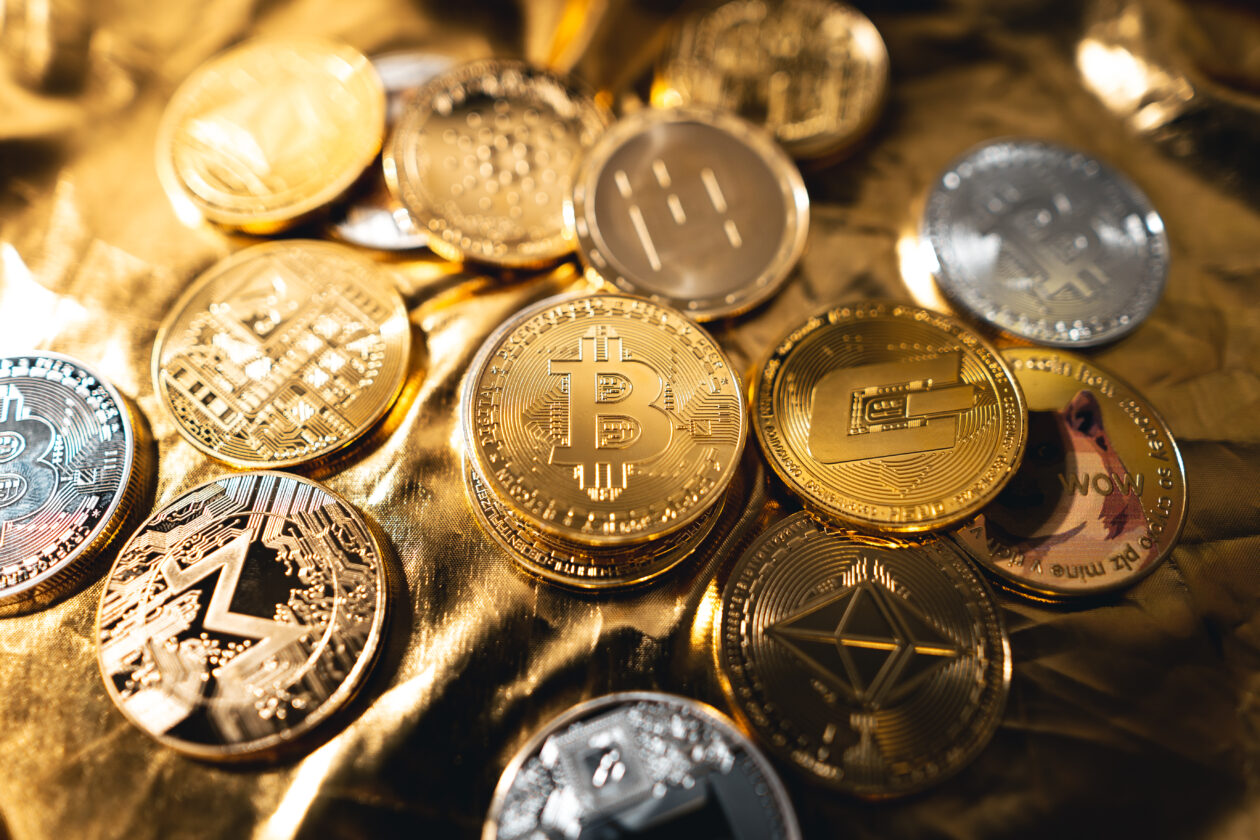Bitcoin, Ether and most other top ten non-stablecoin tokens gained in Wednesday morning trading in Asia, with Bitcoin recovering above the US$29,000 support line. BNB led the winners after its issuer, Binance, relaunched in Japan on Tuesday. Litecoin also posted notable gains ahead of Wednesday’s halving event, its first since August 2019, while the Forkast 500 NFT index was down. U.S. equity futures declined as corporate results came in mixed and the U.S. lost its triple A credit rating.
Crypto in green
Bitcoin rose 0.78% in the last 24 hours to US$29,440.29 as of 7:40 a.m. in Hong Kong, according to data from CoinMarketCap. The world’s largest cryptocurrency recovered after falling below the US$29,000 support line to a low of US$28,657.02 overnight.
Later in the morning, Bitcoin threatened to break through the $30,000 resistance level on the back of Tuesday’s announcement that software developer MicroStrategy plans to sell $750 million of stock. Given MicroStrategy Chairman Michael Saylor’s heavy past investment in Bitcoin, the market interpreted the sale as a sign the company could buy more Bitcoin, raising the token’s price.
Despite that movement, average 30-day Bitcoin price volatility sits at 0.74%, the lowest level since Oct. 2016, according to Buy Bitcoin Worldwide’s index.
Even with the recent Curve Labs hack causing disruption in the world of decentralized finance, Bitcoin’s relative price stability can be put down to a “lack of earth shattering news” in the mold of the FTX or Terra Luna collapses, said Wade Guenther, partner at U.S.-based asset management firm Wilshire Phoenix.
Bitcoin’s price has also resisted major turbulence caused by the U.S. Federal Reserve’s decision at its last meeting on July 26 to raise interest rates to between 5.25% to 5.50% — the highest level since January 2001.
“Bitcoin has been resilient to the U.S. Fed interest rate hikes, likely because bitcoin is controlled by the rules built in the blockchain protocol, not by any country’s central bank policy,” Wade said.
Ether gained 0.63% to US$1,867.92, adding 0.57% in the last seven days, while most other top 10 non-stablecoin cryptocurrencies were also up. Binance’s BNB token led the winners, rising 2.36% to US$247.07 for a weekly gain of 3.90%.
Binance, the world’s largest cryptocurrency exchange, launched its Japan subsidiary, Binance Japan K.K., on Tuesday. With the launch, the Japan exchange debuted BNB for the first time in the country, where it joins 33 other tokens available to users of the platform.
“If you want access to the most coins, now you need to go to Binance,” said Norbert Gehrke, author of the Japan Fintech Observer newsletter, in a note.
Gehrke said that the depth of coins offered on the Binance platform might spell bad news for Japan’s smaller exchanges.
“If you want a cynical view, then the [Financial Services Agency] allowing Binance to operate is just another step towards consolidation in the market and the weeding out of smaller, unprofitable players,” Gehrke added.
Elsewhere, Litecoin rose 1.61% to US$93.65, adding to its weekly growth of 4.59%.
The Litecoin halving event will take place later on Wednesday. The halving is expected to cut mining rewards to increase its scarcity and, potentially, trigger a boost in its price.
The total crypto market capitalization rose 0.06% in the past 24 hours to US$1.18 trillion, while trading volume rose 30.09% to US$37.11 billion.
(Updates to add: paragraph 2, Bitcoin price rise, MicroStrategy)
NFTs down but not out
The Forkast 500 NFT index fell 0.46% in the past 24 hours to 2,502.65 as of 9:00 a.m. in Hong Kong. That fall contributed to a drop of 5.08% for the week and 10.07% for the month.
Forkast’s Ethereum, Solana and Polygon NFT market indexes also all logged losses. However, Cardano’s NFT market showed a gain of 0.51%.
In terms of trade volume, NFT staple Bored Ape Yacht Club topped the chart by rising 24.39% to US$1.09 million in the past 24 hours. Notably, there were also several new entrants in Cryptoslam’s NFT collection ranking chart, such as AIWorld Node, PLAYNFT and DraftKings.
“While it’s slow across the NFT ecosystem in terms of sales volume, the low volume gives smaller projects a chance to stand in the spotlight,” said Yehudah Petscher, NFT strategist at Forkast Labs, the parent company of Forkast.
Polygon network-based DraftKings, the NFT collection from the online sports betting and fantasy sports platform of the same name, ranked second in terms of sales volume. It rose 6.65% to US$814,020.
The DraftKings platform, headquartered in Boston, claims to attract an average of around 2.8 million users per month. Those numbers are boosted by its sports and entertainment-themed digital collectibles, which sports betters and collectors can trade on its own marketplace.
The DMarket and Gods Unchained Cards collections — which both provide in-game NFT items such as skins and other assets — ranked third and fourth respectively, with Forkast Labs’ Petscher commenting that sales of in-game assets of this kind are proving to be “bear market resistant.”
Petscher also noted that the AIWorld Node and PLAYNFT collections are currently seeing around US$200,000 to over US$300,000 in daily sales. He said that the success of the two BNB blockchain-based collections could boost interest in projects beyond the dominant Ethereum blockchain.
“The NFT market is made up of much more than just what’s on Ethereum, so it’s great to see other chains get some attention,” Petscher added.
Meanwhile, Starbucks launched its eighth NFT collection, “Green Apron,” on the Nifty Gateway NFT marketplace on Tuesday. The collection, celebrating 50+ years of service, is part of the Seattle-based coffee shop chain’s blockchain reward program Starbucks Odyssey.
Total NFT trading volume edged down 0.24% in the past 24 hours to US$18.99 million, according to data from CryptoSlam. Volume on Ethereum, the largest NFT network, fell 3.71% to US$12.35 million.
Stocks drop globally after U.S. credit downgrade

The three major U.S. stock futures indexes all fell by around 0.25% as of 11:30 a.m. in Hong Kong, after a mixed day of regular trading on Tuesday.
In Asia, the main stock indexes all declined, with Hong Kong’s Hang Seng index falling by nearly 2%. China’s Shanghai Composite, Japan’s Nikkei 225 and South Korea’s Kospi were all also down.
The Fitch Ratings credit agency announced Tuesday that it had downgraded the U.S. credit rating from AAA to to AA+. The decision arrives in the aftermath of the U.S. debt ceiling standoff between Republican and Democratic lawmakers that threatened to derail global markets earlier in the year.
A Fitch statement said the downgrade reflects an “expected fiscal deterioration” in the U.S. over the next three years. It also cited a growing government debt burden and the deterioration of fiscal and debt governance over the last two decades as reasons for the downgrade.
In other news, U.S. corporate heavyweights posted mixed second quarter earnings results. Starbucks and Pinterest stocks slipped on disappointing business updates. New Mexico-based spaceflight company Virgin Galactic also revealed losses despite the launch of its first commercial spaceflight service during Q2.
The July S&P Global US Manufacturing PMI (purchasing managers’ index), released Tuesday, was down. The dip reflects a decline in U.S. manufacturing operations, although it came in softer than any of the previous three months.
“Manufacturing continues to act as a drag on the U.S. economy, the recent spell of malaise persisting at the start of the third quarter. However, producers are clearly shrugging off recession fears and planning for better times ahead,” wrote Chris Williamson, chief business economist at S&P Global Market Intelligence, in a news release.
Investors still look forward to a slew of corporate results from companies such as Paypal, Thomson Reuters Corp., Ferrari, Robinhood and others on Wednesday. Apple and Amazon’s Q2 earnings are expected Thursday.
Meanwhile, the Federal Reserve — on summer recess in August — next meets to discuss interest rates on Sep. 19 and 20. After a 25 basis point hike in July, rates now stand between 5.25% to 5.50%, the highest since January 2001.
On July 26, Fed chair Jerome Powell said the likelihood of a recession in the U.S. has diminished, indicating to some analysts that the central bank may leave rates unchanged at next month’s meeting.
(Updates to add equities section)






